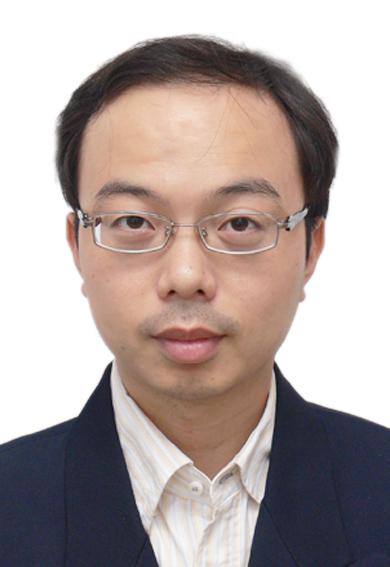|

联系方式
通信地址:南京市四牌楼2#, 东南大学土木工程学院逸夫建筑馆701室, 210096
School of Civil Engineering, Southeast University, Sipailou 2#, Nanjing China, 210096
电话/传真:Tel: (86) 25-83792120; Fax: (86) 25-83793232
Email:chunlin(a)seu.edu.cn; wangmeijo(a)gmail.com
学历和工作经历
2009.10 ~ 讲师,东南大学,土木工程学院,建筑工程系
2010.04 ~ 2012.03 博士后研究员,日本名城大学,高度制震实验和解析研究中心
2005.03 ~ 2009.10 博士,东南大学,土木工程学院,结构工程专业
2002.09 ~ 2005.03 硕士,东南大学,土木工程学院,结构工程专业
1998.09 ~ 2002.06 本科,东南大学,土木工程学院,建筑工程专业
研究方向
(1) 损失可控的高层结构新体系;(2) 高性能结构和构件试验研究
学术任职
2011.01 ~ 中国土木工程学会防震减灾工程技术推广委员会青年分委会委员
学术获奖
2012年 日本土木学会田中论文赏
主持项目
2011.01 ~ 2013.12 国家自然科学基金青年基金, 带有间隙弹性连接的屈服耗能装置滞回性能和应用研究; 批准号:51008077.
2011.09 ~ 2015.09 建筑安全与环境国家重点实验室开放基金,附加刚度屈曲约束支撑结构抗震能力评估.
国际期刊论文 (2011年至今)
1. Chunlin Wang*, Zhitao Lü, Yongming Tu. Dynamic responses of core-tubes with semi-flexible suspension systems linked by viscoelastic dampers under earthquake excitation. Advances in Structural Engineering, 14(5): 801-814, 2011.
2. Jing Wu*, Ren-Jie Liang, Chun-Lin Wang, Zhen Zhou. A modified capacity spectrum method with direct calculation of seismic intensity of points on capacity curve. Journal of Earthquake Engineering, 15(4): 664-683, 2011.
3. Tsutomu Usami*, Chun-Lin Wang, Jyunki Funayama. Developing high-performance aluminum alloy buckling-restrained braces based on series of low-cycle fatigue tests. Earthquake Engineering & Structural Dynamics, 41(4): 643-661, 2012.
4. Chun-Lin Wang, Tsutomu Usami* and Jyunki Funayama. Evaluating the influence of stoppers on the low-cycle fatigue properties of high-performance buckling-restrained braces. Engineering Structures, 41: 167-176, 2012.
5. Jing Wu, Renjie Liang, Chun-Lin Wang and Hanbin Ge*. Restrained buckling behavior of core component in buckling-restrained braces. Advanced Steel Construction, an International Journal, 8(3): 212-225, 2012.
6. Chun-Lin Wang, Tsutomu Usami* and Jyunki Funayama. Improving low-cycle fatigue performance of high-performance buckling-restrained braces by toe-finished method. Journal of Earthquake Engineering, 16(8): 1248-1268, 2012
7. Chun-Lin Wang, Tsutomu Usami*, Jyunki Funayama and Fumiaki Imase. Low-cycle fatigue testing of extruded aluminum alloy buckling-restrained braces. Engineering Structures, 46: 294-301, 2013.
8. Renjie Liang, Jing Wu*, Hanbin Ge and Chunlin Wang. Hysteretic characteristic with P-Δ effect and its influence on collapse resistance capacity of structure under earthquakes. Journal of Earthquake and Tsunami, Accepted.
国内期刊论文(2011年至今)
1. 吴京*, 梁仁杰, 王春林, 周臻. 基于非线性静力分析的地震强度直接计算方法. 建筑结构学报, 2011, 32(9): 44-49.
2. 王春林*, 吕志涛. 基于地震动特性的悬挂减振结构性能. 东南大学学报(自然科学版), 2012, 42(4): 719-723.
3. 吴京*, 梁仁杰, 王春林, 石建华. 屈曲约束支撑核心单元的多波屈曲过程研究. 工程力学, 2012, 29(8): 136-142.
4. 王春林*, 吕志涛. 半柔性悬挂减振结构振动台试验研究. 土木工程学报, 2012, 45(10): 109-117.
5. 王春林*, 吕志涛. 设置黏滞阻尼器的悬挂减振结构振动台试验研究. 建筑结构学报, 2012, 33(10): 32-38.
6. 梁仁杰, 吴京*, 王春林. P-Δ下滞回特征对结构抗倒塌能力的影响[J]. 东南大学学报: 自然科学版, 2013, 43(1): 188-194.
7. 张建东*, 葛汉彬, 王春林. 薄壁加劲箱形钢桥墩简化抗震评估方法[J]. 中国公路学报, 2013, 26(1): 113-120.
8. 梁仁杰, 吴京*, 王春林, 雷雪辰. 考虑P-Δ效应的结构地震倒塌及影响因素分析[J]. 建筑结构学报, 2013, 34(2): 69-75.
9. 李涛, 陈泉, 王春林*, 吴京. 屈曲约束支撑端部塑性扭转屈曲试验研究[J]. 工程力学, 录用.
10. 黄波, 陈泉, 李涛, 王春林*, 吴京. 国标Q235钢屈曲约束支撑低周疲劳试验研究[J]. 土木工程学报, 2013, 46(6): 29-34.
11. 陈泉, 李涛, 王春林*, 孟少平. 无黏结材料对全钢屈曲约束支撑性能影响评估[J]. 建筑结构学报, 2013, 34(7): 119-124.
12. 曾鹏, 陈泉, 王春林*, 孟少平. 全钢自复位屈曲约束支撑理论与数值分析. 土木工程学报, 46(S1), 2013, 46(S1): 19-24.
王春林,2009年10月在东南大学获得结构工程博士学位,毕业后在东南大学从事教学与科研工作。从2010.04到2012.03年在日本名城大学高度制震实验和解析研究中心进行博士后研究,研究成果获得2012年日本土木学会田中论文赏。2011年起担任中国土木工程学会防震减灾工程技术推广委员会青年委员。现阶段主要研究兴趣集中在损伤可控的高层建筑结构新体系、高性能结构和构件研发等方面,主持和参与多项国家自然科学基金项目。
Wang holds a B.S. (2002), M.S. (2005) and Ph.D. (2009) in structural engineering at Southeast University. He has been on the faculty of the school of Civil Engineering at Southeast University since 2009. From 2010 to 2011, he worked as a post-doctoral researcher for the Advanced Research Center for Seismic Experiments and Computations (ARCSEC) at Meijo University, Japan. Dr. Wang currently teaches courses in structural mechanics. He has research interests in innovative structural systems for tall buildings and the high-performance metal-yielding structural members aiming at seismic designs and these researches are supported by the Natural Science Foundation of China.
|

